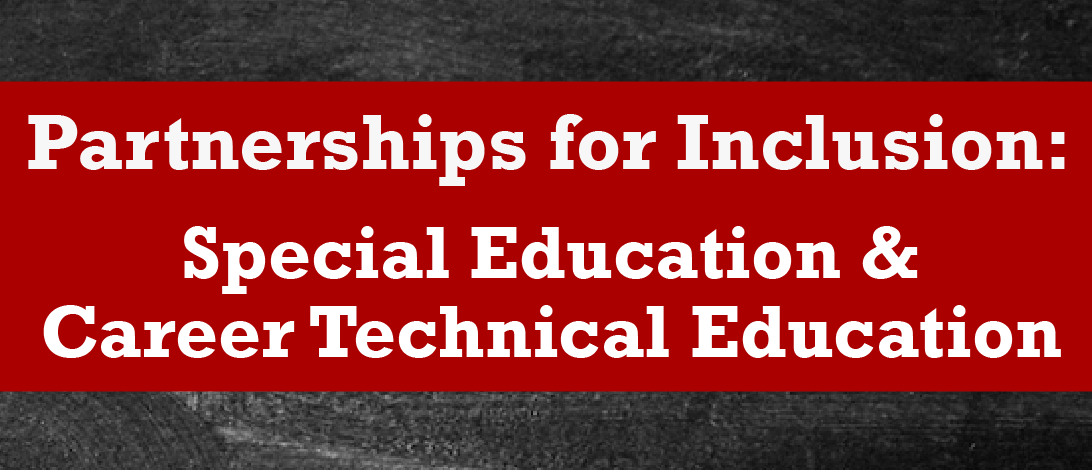Partnerships for Inclusion
Self-paced training about inclusionary practices and partnerships between Special Education (SE) and Career Technical Education (CTE)
About this Training
This self-paced training is designed to inform educators, adult service agencies, and families/caregivers about inclusionary practices and partnerships between Special Education (SE) and Career Technical Education (CTE). View the complete Partnerships for Inclusion course in Canvas, or see details below.
Course Objectives
Participants will increase their knowledge of:
- Inclusion and inclusionary practices in schools
- SE and CTE collaboration to meet the needs of all students, including students with disabilities
- Strategies to increase access to CTE courses for students with disabilities
- Managing the complex change of building SE and CTE partnerships
- Implementation of inclusionary practices from CTE and SE school partners in Washington state
Course Format
- The series consists of six modules that include written and video content.
- Review modules individually or as a team.
- Plan to spend approximately 30 minutes on each module.
- Reflect on the content by completing activities at the end of each module. You may wish to download the Partnerships for Inclusion Activity Workbook to record your reflection activity responses.
Course Modules
Module 1 begins with an introduction to the Center for Change in Transition Services (CCTS) and the Inclusionary Practices Project (IPP). It defines inclusive education and addresses some of the misconceptions that surround inclusionary practices.
Module 2 addresses the importance of collaboration and ideas for building partnerships between Special Education (SE) and Career Technical Education (CTE) teachers. It explores some of the common myths about CTE and offers facts that can support these partnerships. This module concludes with a series of video clips from local school leaders. They highlight strategies for building and strengthening relationships between SE and CTE with the goal of supporting students with disabilities.
To provide a shared understanding of Special Education (SE) for SE and Career Technical Education (CTE) teachers, this module begins with a broad overview of SE. It includes a summary of the Individualized Education Program (IEP) process and the major components of the transition plan, including how they connect with the High School and Beyond Plan (HSBP) and the important role of the CTE teacher.
This module begins with an introduction to the benefits of co-teaching for both students and teachers. It outlines six models of co-teaching to consider for implementation, depending on the environment. It includes video clips from CCTS’s IPP Third Thursday Conversation on Co-Teaching (02/10/2021) where Special Education (SE) and Career Technical Education (CTE) practitioners from Evergreen Public Schools share their experiences with co-teaching.
The final module of this series explores the components of complex change. It includes video clips from CCTS’s Inclusionary Practices Seminar, Designing the Change (4/22/2021), where Special Education (SE) and Career Technical Education (CTE) practitioners share their experiences with implementing inclusive changes in their school districts.
Module 6 focuses on meaningful inclusion for students with Intellectual and Developmental Disabilities (IDD) in CTE classrooms. It begins with an overview of the importance of inclusion for students with IDD and addresses strategies to support inclusion. Recommendations for evaluating inclusionary practices for students with IDD and video examples of effective inclusionary practices in CTE are also included.
- Module 6 Overview
- The Importance of Meaningful Inclusion for Students with IDD
- Universal Design for Learning and Differentiated Instruction
- Transition Planning and CTE Courses
- Assessment and Evaluation of Inclusionary Practices
- Promotion of Independence
- Case Studies and Examples of Effective Inclusionary Practices
- Module 6 Summary
Please consider taking five minutes to reflect on what you’ve learned throughout this course and share it in the Post-Training Reflection Guide.
Your feedback helps us create materials that are meaningful and accessible to stakeholders across Washington state.
